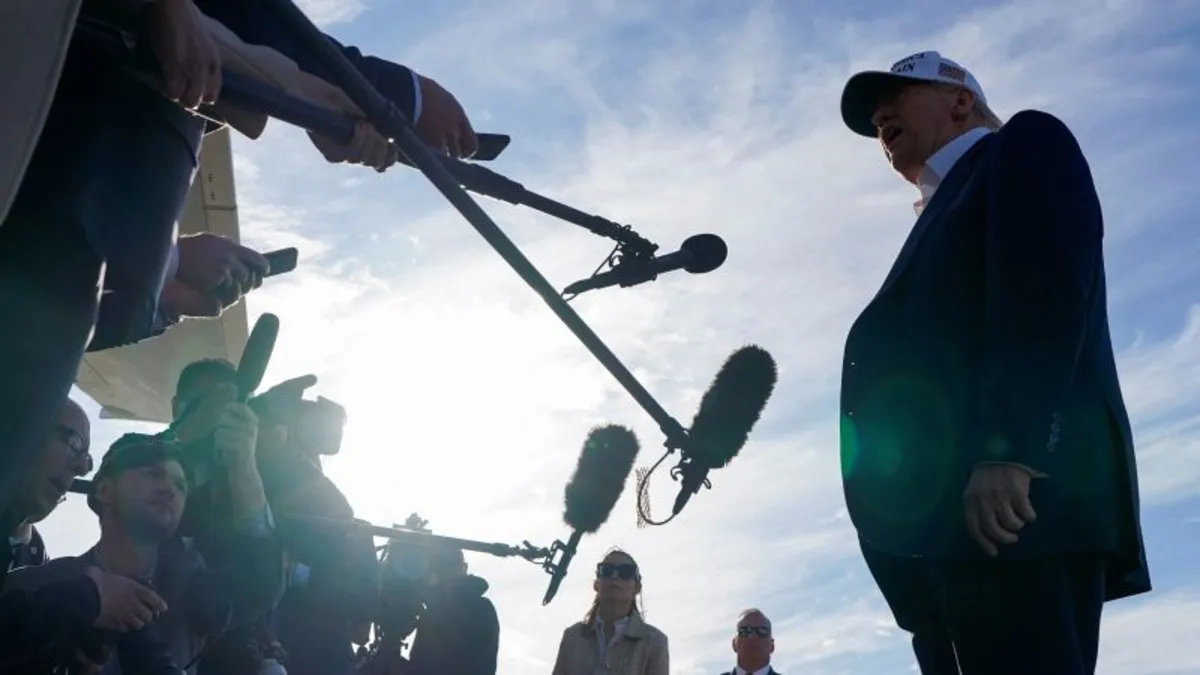
On Sunday, President Donald Trump announced a significant decision to delay the implementation of a 50% tariff on imports from the European Union until July 9. This announcement marks another instance of Trump generating market uncertainty with his tariff threats, only to later retract them. According to Trump, the delay resulted from a productive conversation with European Commission President Ursula von der Leyen.
During a press briefing at the Morristown Municipal Airport in New Jersey, Trump shared insights from his “very nice call” with von der Leyen. “She expressed a desire to engage in serious negotiations,” he stated. “July 9 would be the date she requested. Could we move it from June 1 to July 9? I agreed to do that.” Trump emphasized that both sides are eager to explore potential agreements, stating, “She said we will rapidly get together and see if we can work something out.”
Just days prior, Trump had expressed a rather different stance, indicating that he was “not looking for a deal” with the EU and affirming that the 50% tariff rate would take effect on June 1. This anticipated tariff followed Trump's earlier imposition of a 20% reciprocal tariff on the EU in April, which also faced delays. Shortly after his remarks to the press, Trump took to Truth Social to announce that “talks will begin rapidly.”
Earlier in the day, von der Leyen had shared her positive sentiments about the call on X, stating it was a “good call” with Trump. She highlighted the importance of the EU-US trade relationship, declaring, “The EU and US share the world’s most consequential and close trade relationship. Europe is ready to advance talks swiftly and decisively. To reach a good deal, we would need the time until July 9.”
Trump has consistently raised concerns over what he terms “non-monetary trade barriers” and has criticized countries or trading blocs that experience trade deficits with the United States. According to data from the US Commerce Department, the United States recorded a staggering $236 billion trade deficit with the EU last year. This ongoing issue remains a focal point in Trump’s trade discussions.
In his comments, Trump also shared his alignment with Treasury Secretary Scott Bessent's recent views on manufacturing, suggesting that the focus should not be on returning textile manufacturing to the US. “We’re not looking to make sneakers and t-shirts … we want to make military equipment,” he said. He also emphasized the importance of advancing in technology, stating, “We want to do the ‘AI thing’ with the computers.”
This evolving narrative around tariffs and trade negotiations highlights the complexities of international trade relationships and the ongoing dialogue between the US and the EU, setting the stage for future developments as the July deadline approaches.
Reporting by CNN’s Elisabeth Buchwald contributed to this article.